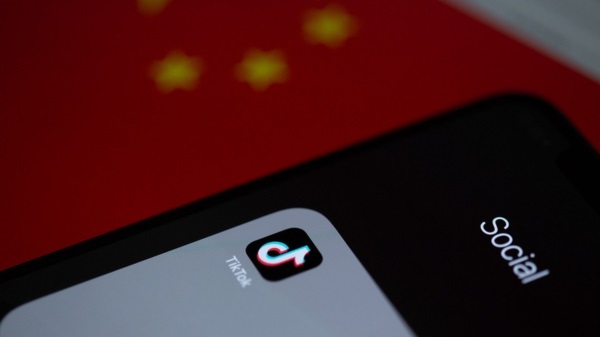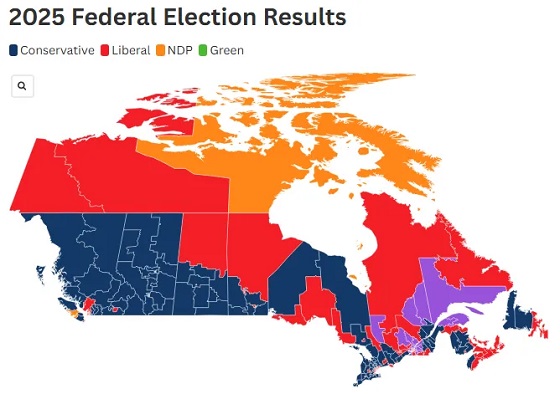Opinion
Judge Andrew P. Napolitano: Can Congress Ban TikTok?

From Heartland Daily News
“Congress shall make no law … abridging the freedom of speech.”
–First Amendment to the U.S. Constitution
When James Madison set about to draft the Bill of Rights — the first 10 amendments to the U.S. Constitution — he was articulating what lawyers and philosophers and judges call “negative rights.” A positive right grants a privilege, like a driver’s license. A negative right restrains the government from interfering with a preexisting right. In order to emphasize his view that the freedom of speech preexisted the government, Madison insisted that the word “the” precede “freedom of speech” in the First Amendment.
If the freedom of speech preceded the government, where did it come from?
Speech is a natural right; it comes from our humanity. The framers of the Constitution and the ratifiers of the Bill of Rights understood and recognized this. Congress doesn’t grant the freedom of speech; rather it is prohibited absolutely from interfering with it. In the years following the ratification of the 14th Amendment, the courts began applying the restrictions in the First Amendment to the states and their municipalities and subdivisions.
Today, the First Amendment bars all government — federal, state and local — and all branches of government — legislative, executive and judicial — from interfering with the freedom of speech.
You’d never know this listening to Congress today. The same Congress that can’t balance a budget or count the number of foreign military bases the feds own, that thinks it can right any wrong and tax any event, that has borrowed over $34 trillion and not paid back any of it; the same Congress now wants to give the President of the United States — whomever might occupy that office — the lawful power to suppress websites he thinks are spying on their users or permitting foreign governments to influence what folks see on the sites. All this is an effort to ban the popular website for young folks called TikTok and force its owners to sell its assets.
Here is the backstory.
Throughout American history, we have suffered from mass fears. In the 1790s, it was fear of the French and of Native Americans. In the 1860s, it was fear of African Americans and fear of Confederates. In the 1900s, it was fear of anarchists, Nazis and Communists. In the first quarter of the present century, the government has whipped up fear of terrorists, Russians, Saddam Hussein, Vladimir Putin and now the Chinese.
In his dystopian novel, “1984,” George Orwell analyzed the totalitarian mind and recognized the need that totalitarians have for fear and hatred. They know that when folks are afraid, they will bargain away the reality of liberty for the illusion of safety. Without fear and hatred, totalitarians have fewer tools for control of the population.
What is the government’s problem with TikTok? The feds want to use fear and hatred of the Chinese government in order to regulate the sources of data and information that Americans can consult. They have projected upon the government of China the very same unlawful and unconstitutional assaults on natural rights that the feds themselves perpetrate upon us.
Thus, in order to gain control over the American public, the deep state — the parts of the government that do not change, no matter which political party is in power — and its friends in Congress have advanced the myth that the Chinese government, which commands the loyalty of the owners of TikTok, might use the site to pass along misinformation or to spy on its users. The key word here is “might,” as the intelligence officials who testified to Congress on this were unable to produce any solid evidence — just fear — that the Chinese government is doing this.
You can’t make this up.
Remember the bumper stickers from the 1970s: “Don’t steal. The government hates competition!” I thought of that line when analyzing this. Why? Because the federal government itself spies on every American who uses a computer or mobile device. The federal government itself captures every keystroke touched on every device in the U.S. The federal government itself captures all data transmitted into, out of and within the U.S. on fiber-optic cables. And the federal government itself told the Supreme Court earlier this week that it needs to be able to influence what data is available on websites in order to combat misinformation.
The federal government basically told the court that it — and not individual persons — should decide what we can read and from what sources. What the federal government did not reveal is its rapacious desire to control the free market in ideas.
Now back to the First Amendment.
The principal value underlying the freedom of speech is free will. We all have free will to think as we wish, to say what we think, to read what we want, to publish what we say. And we can do all this with perfect freedom. We don’t need a government permission slip. The whole purpose of the First Amendment is to guarantee this freedom by keeping the government out of the business of speech — totally and completely. This is the law of the land in modern Supreme Court jurisprudence.
Were this not the law, then the government could suppress the speech it hates and fears and support the speech of its patrons. And then the values that underly the First Amendment would be degraded and negated. The government has no moral or constitutional authority to spy on us or to influence our thoughts. Period.
Does the government work for us or do we work for the government? Have we consented to a nullification of free speech in deference to whomever might be living in the White House? Why do we repose the Constitution into the hands of those who subvert it?
To learn more about Judge Andrew Napolitano, visit https://JudgeNap.com.
COPYRIGHT 2024 ANDREW P. NAPOLITANO
DISTRIBUTED BY CREATORS.COM
For more great content from Rights, Justice & Culture News.
2025 Federal Election
Post election…the chips fell where they fell

From William’s Substack
 William Lacey
William Lacey
I put a lot of personal energy into this election, trying to understand why it was that Canadians so wholeheartedly endorsed Mark Carney as their new leader, despite the fact that it was the same party who caused irreparable economic harm to the economy, and he has a similar philosophical outlook to the core outlook of the party. I truly believe that we have moved to a phase in our electoral process where, until something breaks, left leaning ideology will trump the day (pun intended).
Coming out of this election I have three questions.
1. What of Pierre Poilievre? The question for Conservatives is whether the wolves feed on the carcass of Poilievre (in my opinion the worst enemy of a Conservative is a Conservative) and initiate the hunt for a new leader (if they do, I believe the future should be led by a woman – Melissa Lantsman or possibly Caroline Mulroney), or does Poilievre move to Alberta and run for a “safe” seat to get back into the House of Commons, change his tone, and show people he too can be Prime Ministerial? His concession speech gives clues to this.
2. What of Mark Carney? Maybe (hopefully) Carney will see the light and try to bring the nation together, as there is an obvious east-west split in the country in terms of politics. Time will tell, and minority governments need to be cautious. Will we have a Supply and Confidence 2.0 or will we see olive branches extended?
3. What of the House of Commons? As I have mentioned previously, there has been discussion that the House of Commons may not sit until after the summer break, meaning that the House of Commons really will not have conducted any business in almost a year by the time it reconveens. If indeed “we are in the worst crisis of our lives” as Prime Minister Carney campaigned on, then should we not have the House of Commons sit through the summer? After all, the summer break usually is for politicians to go back to their ridings and connect with their constituents, but if an election campaign doesn’t constitute connecting, what does?
Regardless, as the election is behind us, we now need to see what comes. I will try to be hopeful, but remain cautious. May Canada have better days ahead.
Thanks for reading William’s Substack!
Subscribe for free to receive new posts and support my work.
Banks
TD Bank Account Closures Expose Chinese Hybrid Warfare Threat

From the Frontier Centre for Public Policy
Scott McGregor warns that Chinese hybrid warfare is no longer hypothetical—it’s unfolding in Canada now. TD Bank’s closure of CCP-linked accounts highlights the rising infiltration of financial interests. From cyberattacks to guanxi-driven influence, Canada’s institutions face a systemic threat. As banks sound the alarm, Ottawa dithers. McGregor calls for urgent, whole-of-society action before foreign interference further erodes our sovereignty.
Chinese hybrid warfare isn’t coming. It’s here. And Canada’s response has been dangerously complacent
The recent revelation by The Globe and Mail that TD Bank has closed accounts linked to pro-China groups—including those associated with former Liberal MP Han Dong—should not be dismissed as routine risk management. Rather, it is a visible sign of a much deeper and more insidious campaign: a hybrid war being waged by the Chinese Communist Party (CCP) across Canada’s political, economic and digital spheres.
TD Bank’s move—reportedly driven by “reputational risk” and concerns over foreign interference—marks a rare, public signal from the private sector. Politically exposed persons (PEPs), a term used in banking and intelligence circles to denote individuals vulnerable to corruption or manipulation, were reportedly among those flagged. When a leading Canadian bank takes action while the government remains hesitant, it suggests the threat is no longer theoretical. It is here.
Hybrid warfare refers to the use of non-military tools—such as cyberattacks, financial manipulation, political influence and disinformation—to erode a nation’s sovereignty and resilience from within. In The Mosaic Effect: How the Chinese Communist Party Started a Hybrid War in America’s Backyard, co-authored with Ina Mitchell, we detailed how the CCP has developed a complex and opaque architecture of influence within Canadian institutions. What we’re seeing now is the slow unravelling of that system, one bank record at a time.
Financial manipulation is a key component of this strategy. CCP-linked actors often use opaque payment systems—such as WeChat Pay, UnionPay or cryptocurrency—to move money outside traditional compliance structures. These platforms facilitate the unchecked flow of funds into Canadian sectors like real estate, academia and infrastructure, many of which are tied to national security and economic competitiveness.
Layered into this is China’s corporate-social credit system. While framed as a financial scoring tool, it also functions as a mechanism of political control, compelling Chinese firms and individuals—even abroad—to align with party objectives. In this context, there is no such thing as a genuinely independent Chinese company.
Complementing these structural tools is guanxi—a Chinese system of interpersonal networks and mutual obligations. Though rooted in trust, guanxi can be repurposed to quietly influence decision-makers, bypass oversight and secure insider deals. In the wrong hands, it becomes an informal channel of foreign control.
Meanwhile, Canada continues to face escalating cyberattacks linked to the Chinese state. These operations have targeted government agencies and private firms, stealing sensitive data, compromising infrastructure and undermining public confidence. These are not isolated intrusions—they are part of a broader effort to weaken Canada’s digital, economic and democratic institutions.
The TD Bank decision should be seen as a bellwether. Financial institutions are increasingly on the front lines of this undeclared conflict. Their actions raise an urgent question: if private-sector actors recognize the risk, why hasn’t the federal government acted more decisively?
The issue of Chinese interference has made headlines in recent years, from allegations of election meddling to intimidation of diaspora communities. TD’s decision adds a new financial layer to this growing concern.
Canada cannot afford to respond with fragmented, reactive policies. What’s needed is a whole-of-society response: new legislation to address foreign interference, strengthened compliance frameworks in finance and technology, and a clear-eyed recognition that hybrid warfare is already being waged on Canadian soil.
The CCP’s strategy is long-term, multidimensional and calculated. It blends political leverage, economic subversion, transnational organized crime and cyber operations. Canada must respond with equal sophistication, coordination and resolve.
The mosaic of influence isn’t forming. It’s already here. Recognizing the full picture is no longer optional. Canadians must demand transparency, accountability and action before more of our institutions fall under foreign control.
Scott McGregor is a defence and intelligence veteran, co-author of The Mosaic Effect: How the Chinese Communist Party Started a Hybrid War in America’s Backyard, and the managing partner of Close Hold Intelligence Consulting Ltd. He is a senior security adviser to the Council on Countering Hybrid Warfare and a former intelligence adviser to the RCMP and the B.C. Attorney General. He writes for the Frontier Centre for Public Policy.
-

 Alberta16 hours ago
Alberta16 hours agoNew Alberta Election Act bans electronic vote counting machines, lowers threshold for recalls and petitions
-

 Alberta16 hours ago
Alberta16 hours agoHours after Liberal election win, Alberta Prosperity Project drumming up interest in referendum
-

 Alberta1 day ago
Alberta1 day agoPremier Danielle Smith responds to election of Liberal government
-

 Banks17 hours ago
Banks17 hours agoTD Bank Account Closures Expose Chinese Hybrid Warfare Threat
-

 Automotive2 days ago
Automotive2 days agoMajor automakers push congress to block California’s 2035 EV mandate
-

 Autism2 days ago
Autism2 days agoUK plans to test children with gender confusion for autism
-

 COVID-192 days ago
COVID-192 days agoFormer Australian state premier accused of lying about justification for COVID lockdowns
-

 Business2 days ago
Business2 days agoNet Zero by 2050: There is no realistic path to affordable and reliable electricity





